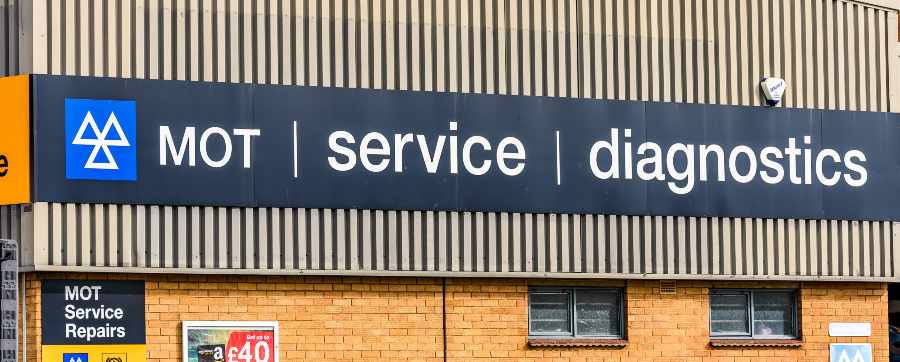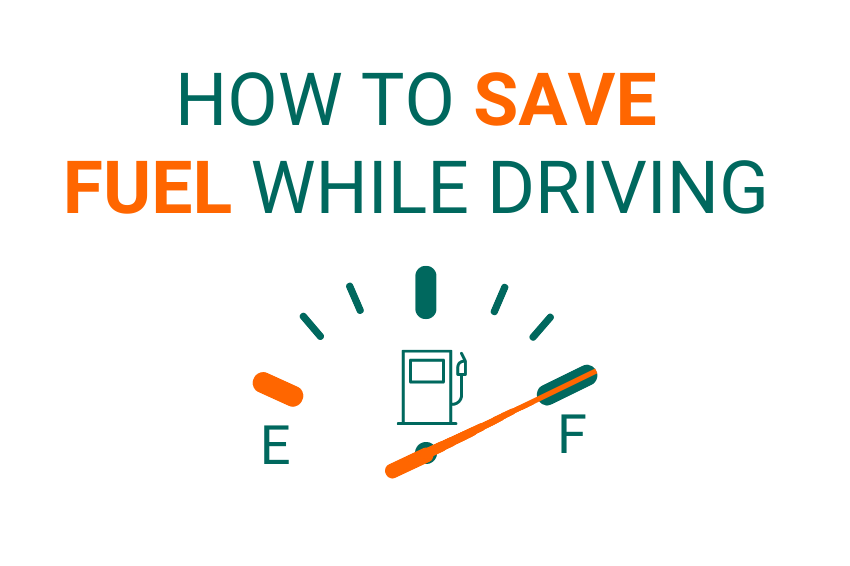Fact: today in 2022 we are back to where we were 40 years ago. How? May 2022 saw the highest annual rate of inflation since 1982. As a result, this has affected our everyday purchases of food and household supplies. This has also had a direct effect on inflation, which (as you may know) has sky-rocketed the costs of new cars and fuel. It feels almost impossible to know how to save fuel while driving.
Especially knowing that as of June 2022, for the average UK petrol and diesel car, the cost of unleaded fuel has risen to 155.47p per litre over the course of the year – this is the highest it has reached in over 20 years!
With the cost of living forever going up along with the ever-increasing fuel prices, it can feel near impossible to keep your head above the water. That is why today, by the end of this article, you will be well equipped with tips, tricks and hacks on how to save fuel while driving. That’s right, it’s time to wave goodbye to your worries and get ready to conquer all your fuel-saving abilities!

How can you save fuel?
The basics:
Whether you drive a diesel, petrol, or hybrid car, how to save fuel while driving does not differ between the engine type. Let’s start with when fuel is actually used.
Fuel is used when:
- Putting your foot on the accelerator and when pressing the brakes
- When the engine is on (when stationary)
- When turning the gadgets on, this includes anything from air conditioning, electric infotainment etc. As it uses power from the engine (this is petrol, diesel, hybrid and electric)
Another important factor that affects fuel efficiency is weight. How do you overcome this?
- Don’t leave items in your car unless you need them
- When driving at high speeds close the windows as this will greatly reduce drag and improve aerodynamics
Taking these steps to reduce your weight could save you 0.5 litres for every 100 miles. Imagine that!

Driving style
How about driving style? Do you know how to save fuel while driving and the impact it has on fuel efficiency?
Drive sensibly
Keep your speed in check and don’t rapidly accelerate or brake suddenly (when you can, of course) as this can waste fuel. Each vehicle reaches its optimal fuel economy at different speeds but fuel often decreases rapidly at speeds above 50mph. Of course, if you are on the motorway this can’t be helped but keeping your speed in check in rural and urban areas can help conserve fuel.
Don’t ride the clutch and use the right gear
Use the clutch only when changing gears or coming to a complete stop. Riding the clutch and shifting gears can waste your fuel.
Don’t rev up your car or drive slowly in high gear, make sure you follow the recommended gear pattern. As you speed up then you should reach the highest gear to optimize fuel consumption.
Don’t idle
You can waste a lot of fuel idling, especially if you are also using air conditioning. If you are stuck in traffic or parked then make sure you turn your engine off. It only takes a few seconds worth of fuel to restart your vehicle, it stops fuel from being wasted and it is good for the environment.
It’s actually illegal to keep your car running outside of your house, read more about other traffic laws you might not be aware of here.
Do everything in one trip
Avoid stop-start journeys. This includes taking routes that are full of traffic, although this is difficult to always know, if you plan your journey ahead of time using apps such as Google Maps or Waze, these will let you know before you set off about any potential traffic jams.
This also includes driving to the newsagent which is around the corner first thing, when your car has been left alone all night is a waste.
Why?
The engine is cold from lack of use, warming it up just to drive a few minutes around the corner is not fuel-efficient, as just warming the engine up from cold to warm, enough to use it, takes quite a bit of fuel. Walk it instead. OR complete your errands and chores that require driving all at once.
Take care of your car

Service your car
Another aspect that should be considered to boost your fuel is servicing your car regularly. Now, we know that servicing comes at a cost, but the reality is if you neglect your vehicle and don’t invest in taking care of it you will be faced with a greater cost: a crap car. However, if your vehicle is well lubed up with oil your engine will be grateful and reward you with fewer trips to the garage and more money in your pocket.

Keep your engine tuned
Fixing an engine that is out of tune or failed an emission test can increase fuel efficiency by 4%. Other repairs such as a faulty oxygen sensor can improve your mileage by 40%.
Tune-ups can include adjustment of the carburettor idle speed or replacement of components such as spark plugs or contact breaker points. It could also include a replacement of the air filter and other filters.
Make sure your tyres are in good shape
We mentioned this above but keeping your tyres in good shape can seriously increase fuel efficiency. Under-inflated tyres are dangerous and can also increase fuel waste.
Making sure that your tyres are in good shape and are properly inflated will keep you safer and will increase your fuel efficiency.
Replace clogged filters
This comes with keeping your engine tuned but ensuring that the filters are not clogged can also increase your fuel efficiency. Making small changes can greatly increase fuel efficiency and if you do them often enough, they become new habits.
How to save fuel on the motorway
How about when you come to drive on the motorway? How can you save fuel then? Very similar to the general tips given above, you should prioritise the following:
- Maintain the speed you are travelling at
- Look way ahead of the road, not just the car in front of you
- Let the car naturally slow down
- Resist braking or speeding unnecessarily
- Plan your journey ahead of time
- Drive appropriately considering speed limits and the road environment
How to save fuel in traffic
If you haven’t got a start-stop engine, we would advise not turning your engine completely off when you’re sitting at the traffic lights.
Whereas if you’re sitting at a railway crossing, regardless of whether you have a start-stop engine or not, we would say to turn it off, as you are likely to be waiting considerably longer than at traffic lights.
You may notice that the vast majority of drivers out on the road tend to switch very quickly between accelerating and braking going back and forth. When really, the most fuel-efficient way to drive is to let the car roll rather than constantly press the pedals down.
This applies also when going down hills. If you have a turning to make after a hill just steer the car naturally around the bend.
Often when people drive, they are focused on the car just in front of them rather than looking ahead in the distance.
Don’t just look at the front of your bonnet and the back of the car in front of you. You need to be looking ahead in the distance.
If you want to save fuel, it’s not about driving under the speed limit as that can cause danger.
What it is about is: looking ahead and considering “do I need to accelerate to get to the next spot faster than everyone who is accelerating hard”.
If you see a queue of traffic ahead of you remember: you will still be in the same queue whether you accelerate hard or not – so you may as well drive efficiently and save fuel.
Erratic acceleration and braking use fuel. Looking ahead and planning reserves fuel makes it a safer drive and, believe it or not, will often get you to your end destination faster because the people who accelerate hard tend to end up in the long queue, but because you have held back you can see that actually the left lane is empty and because of this you can just stroll past.
How to save fuel on long trips

What about when you plan to take your road trip down the M5 or along the British coast, no one wants to have to pull over more than they need to fill up with fuel. How can we prevent this and make the most of our long trips?
Consider your route ahead of time – using an app like Waze or Google Maps will let you know in real-time of any traffic and will suggest the best route to take, you can usually filter this by the quickest or the most fuel efficient.
Consider the time you leave – it is a well-known fact that leaving mid-morning to lunchtime, anywhere on most motorways you will be met with a form of traffic. Whereas if you leave at 3 am, you will only be accompanied by the few night workers driving their lorries, and your journey could be cut in half.
Need an economical SUV for long journeys? Read our latest article on the top 10 most economical SUVs – small and large!
How to save fuel while towing
Perhaps you are planning a glamping trip away but still want to know how to save fuel while driving. Well, thankfully there are indeed ways to save fuel whilst towing your caravan on the roads:
- Engine – make sure the vehicle you are using to tow the caravan has quite a large engine, as a smaller engine will struggle greatly with the excess weight
- Weight – ensure there isn’t any unnecessary added weight because this will decrease the fuel efficiency
Does cruise control affect fuel efficiency?
So, does cruise control affect fuel efficiency? Cruise control does in fact affect it positively. Depending on how you use it. Most people use it whilst cruising down an A road or a motorway, as it stops you from speeding and instead maintains a consistent correct speed for you.
What often happens without cruise control, is when your foot is on the pedal for so long it tends to, after driving for a while, get heavy. Naturally, you then begin to increase your speed and burn through more fuel – unintentionally.
Cruise control eliminates this problem completely. As long as you set it at the appropriate speed suiting the conditions you are driving in and the speed limit.
How to save fuel while driving
So, hopefully, by now you are equipped with the tips, tricks and know-how of how to save fuel while driving. Remember the key points; always look ahead; don’t press the pedals down more than needed; take care of your car; don’t unnecessarily weigh your car down; improve your driving style; plan your journey ahead of time, and you should be good to go (efficiently)!
Are there any tips we have missed out on that you would add? We would love your input in the comments below!


